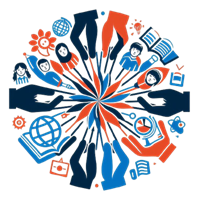Site blog
Recently I had a wonderful seminar on Blues poetry and music baded on my project LP and the students' feedback was amazing.











I would like to share with you the experience I had when trying my lesson plan. I used it on an English lesson with the first-year students of bilingual studies. The lesson plan combines the subjects of English, History, Literature and Art and Culture in a very engaging and practical way through which students can learn a lot about the English-speaking country they are assigned as well as the countries their classmates present. Moreover, they learn a lot about geography and tourist attractions of the place, practice their speaking skills and enhance their creativity and teamwork. I also interconnected the activity with the practise of describing a place, which forms part of the English curriculum.
The objective of the lesson was to create a leaflet that would offer information about an English-speaking country that would serve for potential tourists to learn more about the place they are going to visit and in terms of the rising concept of responsible tourism, they would be better prepared for their journey.
The students were divided into the groups of three / four students, each group receiving one of the following countries: the USA, Canada, the UK: Wales, Scotland, England, Northern Ireland; Ireland, New Zealand and Australia. They represented a travel agency that would focus on organizing and promoting holidays of that particular destination and create an information leaflet / brochure / poster about it, containing the following information:
1) Contact information of your travel agency and its name
2) Brief history of the country
3) The most interesting examples of culture and art
4) Examples of the most famous literary works and writers
5) Tourist attractions and places to see
6) Things to do there
In my instructions for students, I combined possible results of both an in-person and online lesson, therefore students were free to create a leaflet on a paper or online using different platforms, for instance, Canva. I adjust pictures demonstrating my students’ hard work and creativity.

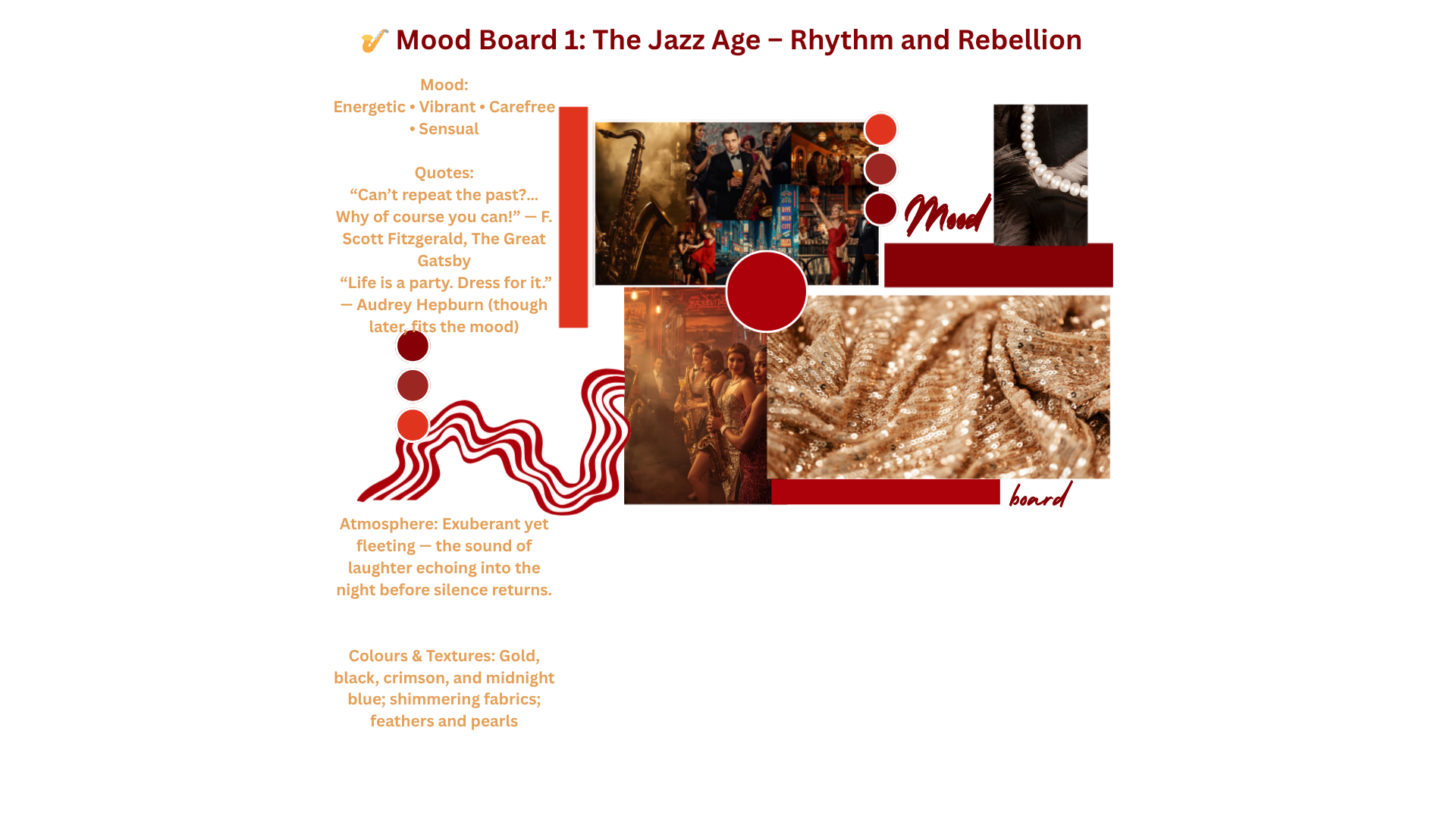
The Roaring Twenties — a decade of jazz, rebellion, and glittering illusion — continues to fascinate readers and learners alike. In literature, it’s more than just a historical backdrop; it’s a living, breathing force that shapes the mood, the atmosphere, and even the characters themselves. This wonderful lesson plan from our Erasmus colleague Bökös Borbála invites students to step into the rhythm of the 1920s and explore how writers of the period used its energy and contradictions to shape unforgettable stories.
The 1920s were marked by transformation — post-war optimism, rapid industrial growth, and a cultural revolution that saw traditional values collide with modern ambitions. In novels like The Great Gatsby, the era itself becomes a character. The glitter of parties, the rhythm of jazz, and the restless pursuit of pleasure all create an atmosphere of both excitement and emptiness.
Students began by identifying key elements of the Roaring Twenties such as social change, economic boom, cultural vibrancy, moral ambiguity, and the pursuit of the American Dream
Through these elements, learners examined how writers use setting, imagery, and tone to build a distinctive mood — one that swings between dazzling vitality and deep melancholy.
Through close reading, discussion, and creative analysis, students considered how language choices evoke emotion: the rhythm of sentences, the symbolism of light and shadow, and the contrast between wealth and isolation.
Students then proceeded to create mood boards which reflected their undertanding of the period and helped them feel the 1920s rather than simply study it.
By the end, students didn’t just understand the period — they experienced how atmosphere shapes identity and emotion in literature.

In a world where advertising shapes much of what we see, buy, and even believe, commercial campaigns have tremendous power. They can reinforce outdated norms — or challenge them. Today, more brands are realizing that their influence can go beyond selling products; they can help redefine what equality looks like. Planning a campaign to challenge gender stereotypes is not just good ethics — it’s good business.
Traditional advertising has long portrayed men as strong, decisive, and career-driven, while women are often shown as nurturing, emotional, or confined to domestic spaces. Such portrayals subtly dictate what society expects from each gender.
Breaking these stereotypes means recognizing how they limit real people. When a campaign highlights men as caregivers or women as leaders, it challenges assumptions and encourages inclusion.
Challenging gender stereotypes in advertising is not about being politically correct — it’s about being human. Campaigns that promote equality and inclusivity don’t just reshape public perception; they build stronger brands. Advertising has the power to reflect a more equal, diverse, and inspiring world.
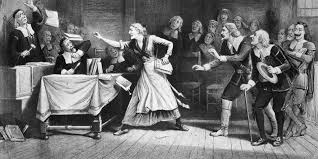
The Salem witch trials of 1692 remain one of the darkest chapters in early American history — a time when fear eclipsed reason, and hysteria was weaponized against the vulnerable. Yet, the deeper tragedy of Salem isn’t only about superstition or religious zeal. It’s about how societies, past and present, create systems that justify persecution in the name of purity, safety, or order.
🕯️ The Salem Witch Trials: Fear as a Social Weapon
In colonial Massachusetts, over 200 people were accused of witchcraft, and 20 were executed. These events were fueled by paranoia, misogyny, and a rigid Puritan belief system that saw deviation as danger. Women, especially those who were outspoken, independent, or poor, were disproportionately targeted. Their persecution wasn’t random — it was systematic, reflecting deep-seated fears about power, gender, and control.
The witch trials ended, but their legacy didn’t. Salem revealed how easily a community can turn on itself when authority, fear, and moral panic converge.
📱 Modern-Day Witch Hunts
The witch hunts of the 17th century may have ended, but their digital descendants thrive. Today, social media trials can destroy reputations overnight. Cancel culture, misinformation campaigns, and moral outrage cycles mirror the same psychological mechanisms as Salem — fear, conformity, and the rush to judgment.




What if The Great Gatsby characters lived in the 21st century? How would they express their desires, secrets, and illusions online?
In this creative classroom project, students bring F. Scott Fitzgerald’s timeless characters to life by designing fictional social media profiles that reflect their personalities, relationships, and moral complexities.
This activity deepens analytical reading skills, encourages creative writing, and strengthens digital literacy—all while making classic literature come alive.
💡 The Project at a Glance
Students analyzed The Great Gatsby through a modern lens.
Each group created a social media profile for a chosen character—complete with bios, posts, images, hashtags, and interactions with other characters.
The goal?
To understand each character’s motivations, relationships, and contradictions by imagining how they’d present themselves online.
By stepping into the digital shoes of Fitzgerald’s characters, students discover how timeless themes—wealth, love, illusion, and morality—can be expressed in today’s virtual world.
As students scroll through Gatsby’s glamorous posts and Daisy’s filtered melancholy, they see that beneath the hashtags and glitz lies the same question Fitzgerald posed a century ago:
What is the cost of chasing the American Dream?
In The Great Gatsby, every character performs a version of themselves—carefully constructed, polished, and projected outward to be admired. Through this project, students begin to recognize that these performances aren’t confined to the 1920s. The way Gatsby hosts parties to be noticed isn’t so different from how modern influencers post for validation. By transforming these literary characters into digital personas, students are challenged to think critically about appearance versus reality, authenticity versus performance, and the illusion of connection. The social media profiles become more than creative assignments—they’re mirrors reflecting how identity is shaped, edited, and consumed, both then and now.

In today’s globally connected world, literature gives us a powerful way to step into someone else’s shoes and experience life from a new perspective.
The students began an exciting journey into cross-cultural literature — exploring how stories, poems, and voices from different corners of the world reveal the beauty and diversity of human experience.
The lesson began with an introduction to the concept of cross-cultural literature. Students discussed how authors express their cultural identity through language, imagery, and themes — and how literature can both preserve tradition and challenge cultural norms. From ancient folktales to modern verse, the class explored how stories act as bridges between people and places, inviting readers to see the world through fresh eyes.
Exploring Cultural Voices
African Folklore:
We began our exploration with the African folktale “Why the Sun and the Moon Live in the Sky.” Students listened as the story unfolded, learning how traditional African storytelling uses myth to explain natural phenomena and convey moral lessons. The tale sparked discussion about the importance of oral traditions and how myths connect communities through shared understanding.
Japanese Haiku:
Next, we traveled to Japan through the delicate words of Matsuo Bashō’s haikus. Students examined how these short, nature-inspired poems capture fleeting moments of beauty and emotion. The class discussed the role of simplicity and silence in Japanese art and how haikus encourage mindfulness — an appreciation for the present moment.
Latin American Magical Realism:
Finally, we entered the vivid world of Gabriel García Márquez’s One Hundred Years of Solitude. Students read an excerpt that illustrated magical realism, where the extraordinary and the everyday coexist naturally. Through this style, Latin American writers reveal deep truths about political struggles, social change, and the blending of myth and reality in their cultural heritage.
This lesson plan encourages students to think critically about how culture shapes storytelling and how, despite our differences, literature connects us through shared humanity.
As part of an Erasmus course, I had the opportunity to test one of my previous lesson plans in practice with students from Partium Christian University and several visiting exchange students. The session focused on the interconnection between myths and fantasy, with special attention to adaptations—particularly the reinterpretations of famous myths in the Percy Jackson young adult book series.
During the seminar, students discussed the blending of genres such as YA fiction, fantasy, and mythology, exploring how these categories interact. They also debated the innovative ways in which the adaptations reimagine and modernize ancient Greek myths. Following Joseph Campbell’s Hero’s Journey framework, we mapped the protagonist’s coming-of-age process, the possible paths to heroism, and identified the archetypal roles represented by various characters.
In our in-depth discussions, we examined whether the film adaptations trivialize or, on the contrary, revitalize and bring ancient myths closer to modern audiences. We also explored how the story’s settings contribute to new myth-making, and how the protagonist’s hybridity (being half-god, half-human) raises broader questions about identity and self-definition.
The session concluded with a lively and entertaining Kahoot quiz game.





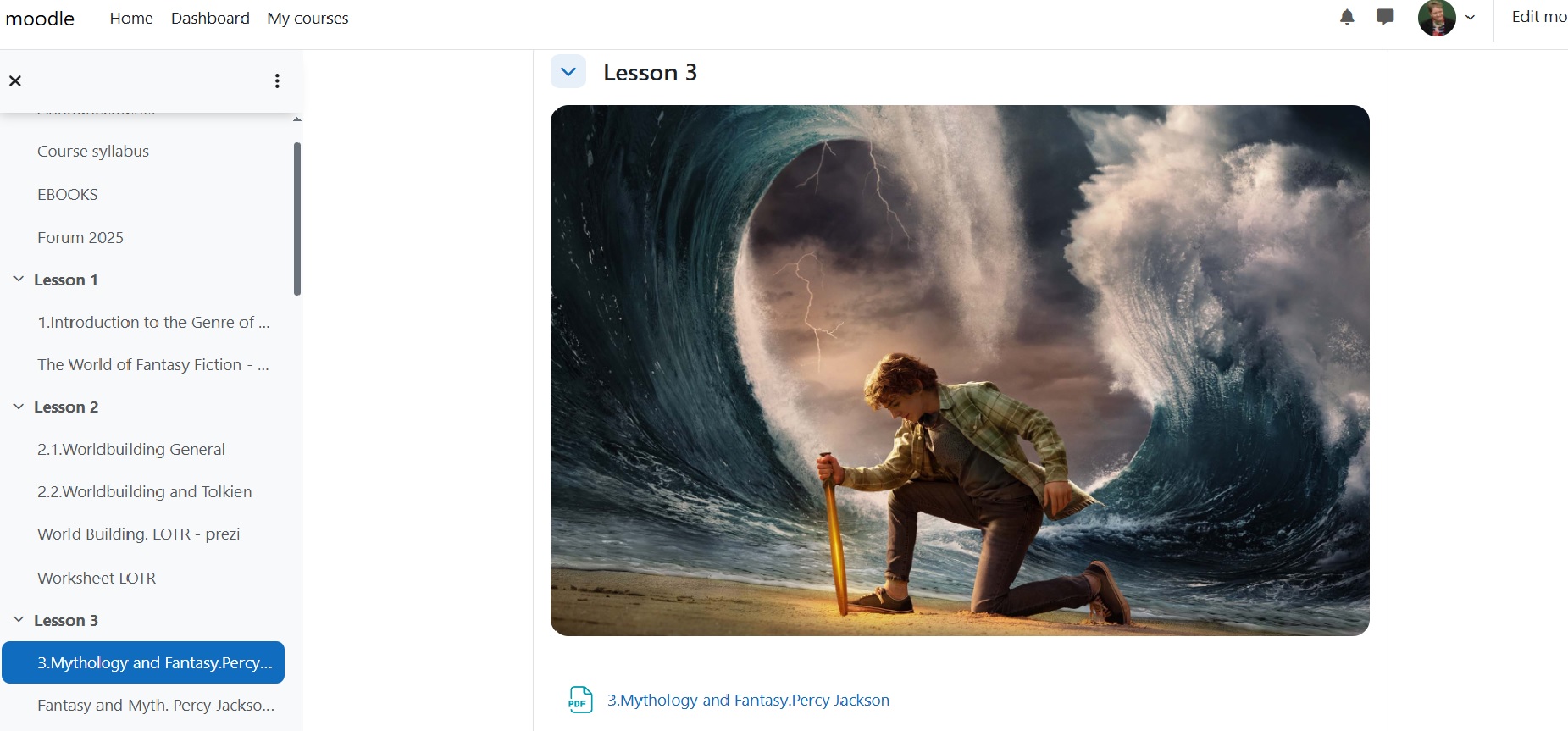
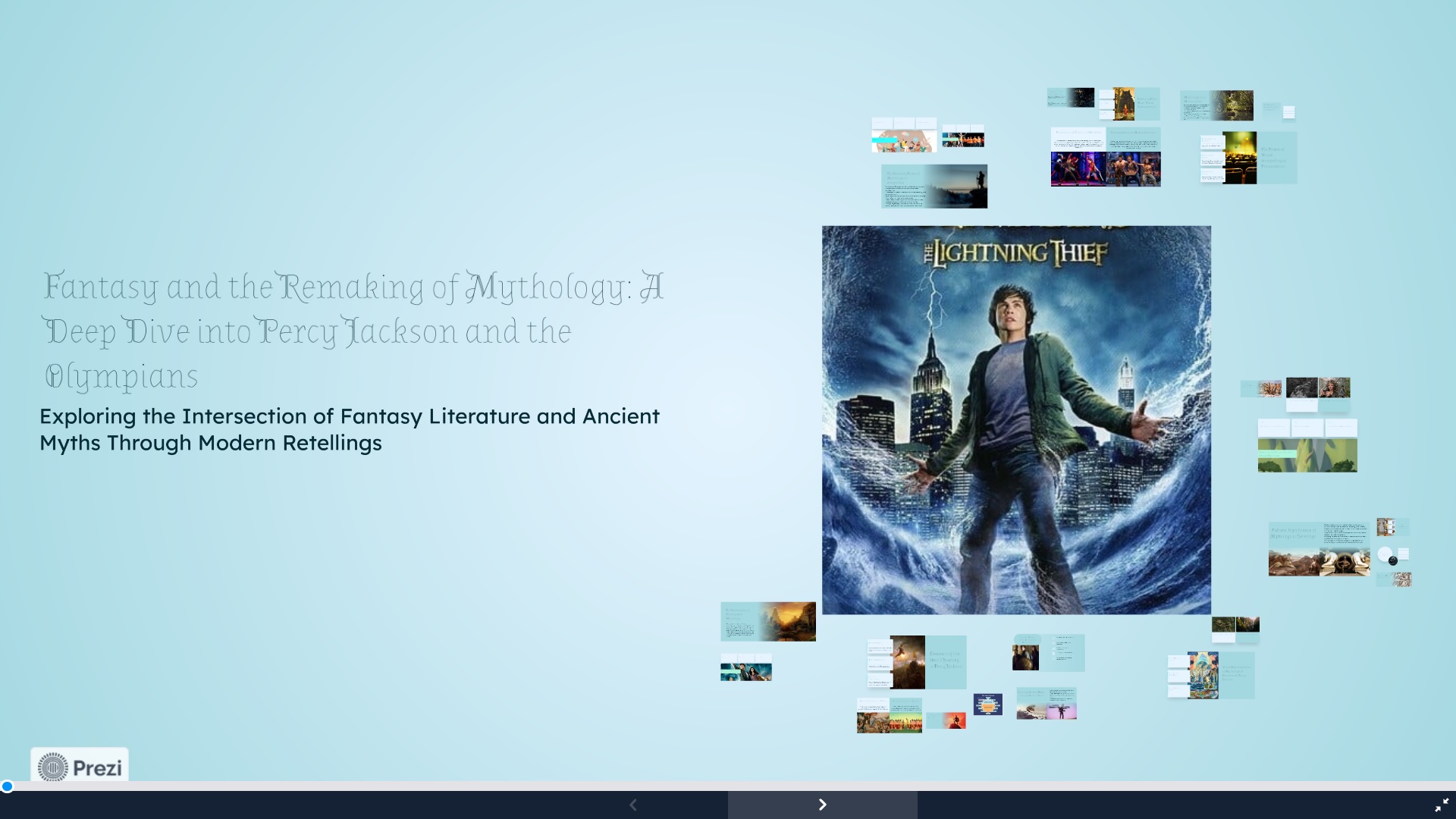
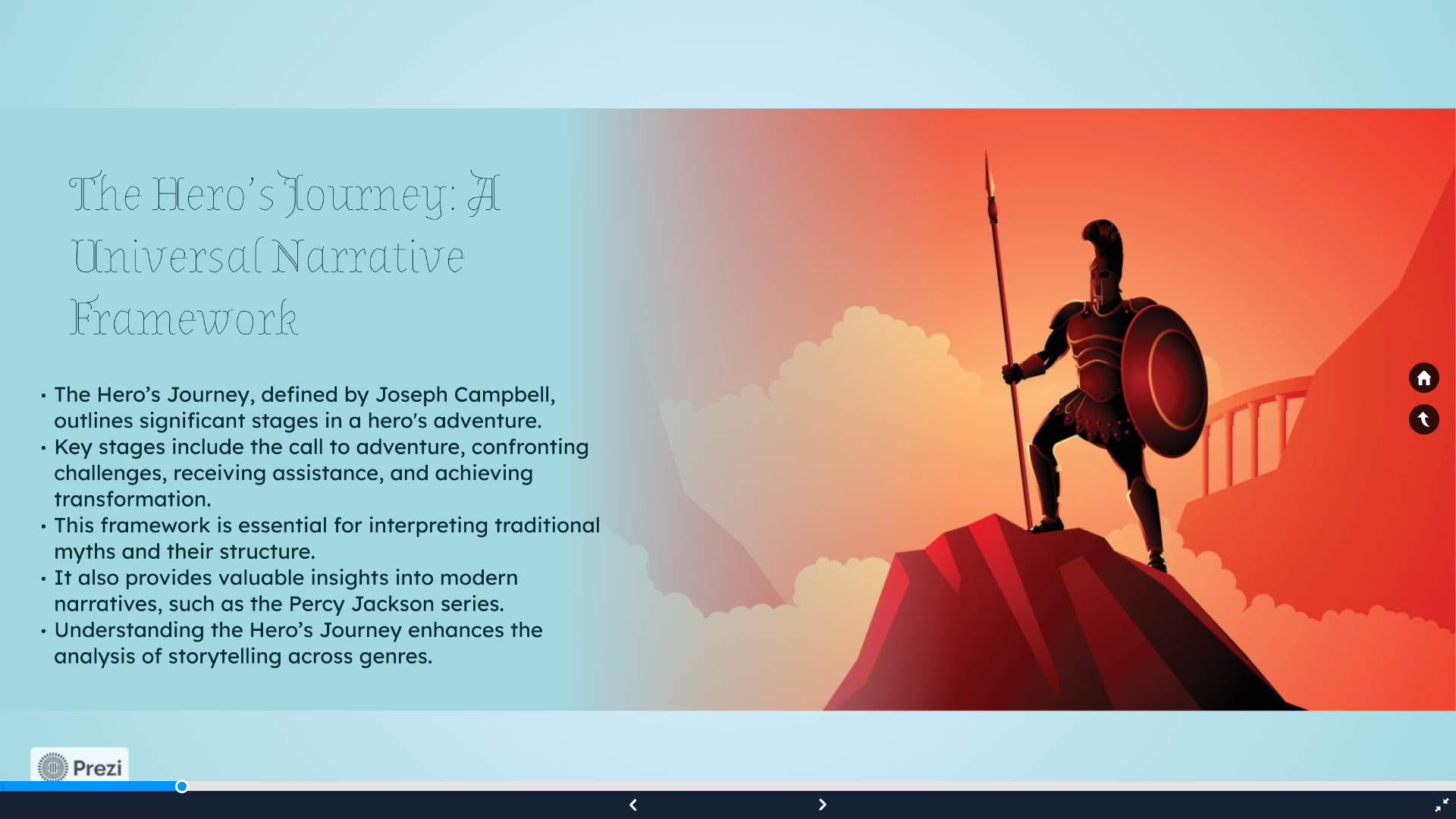
In my classes, after reading and analysisng Kipling’s poem "The Overland Mail", students had to write their own poems describing the experiences of the mail messenger from his own perspective.
Here are their creations:
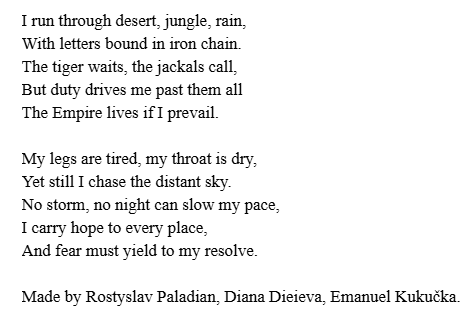
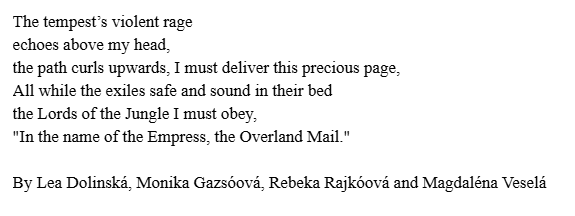
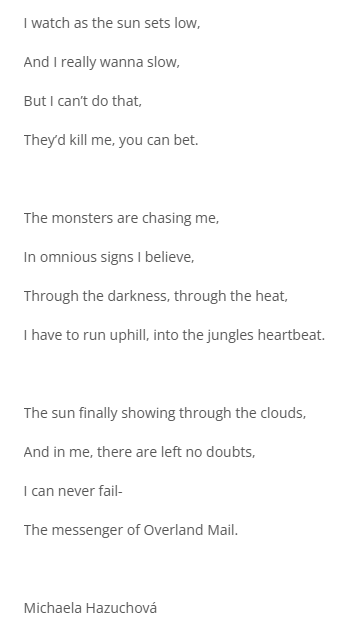
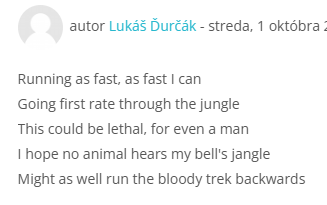
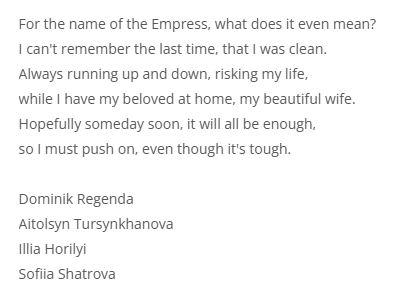

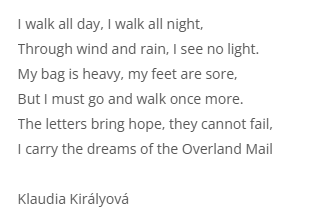
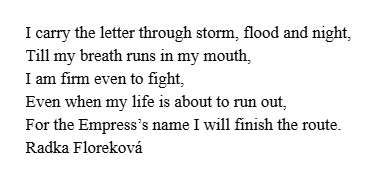
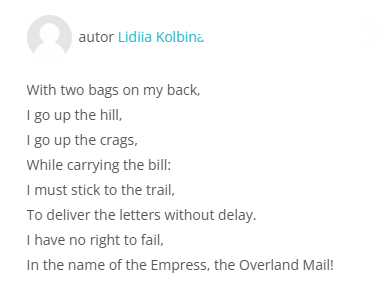
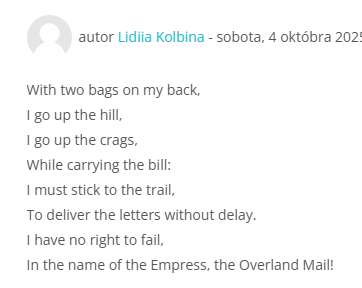
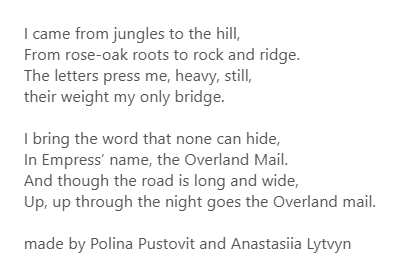
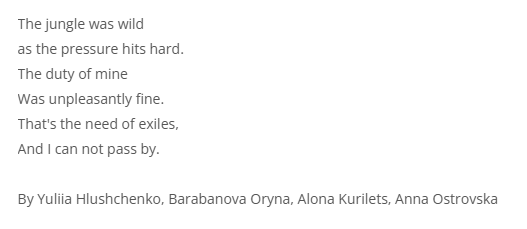
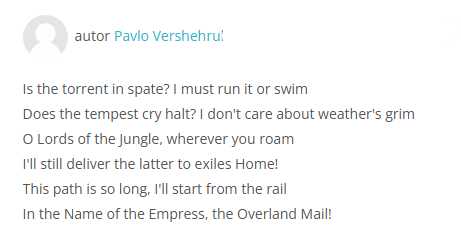
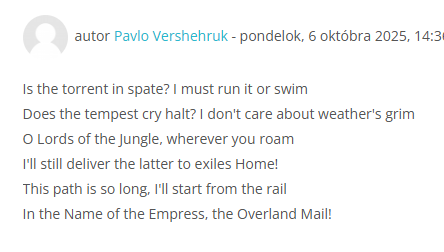
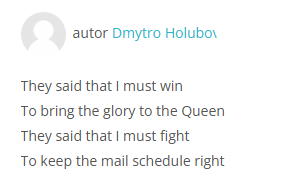
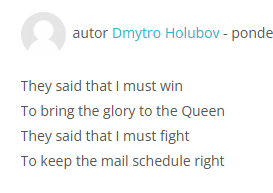
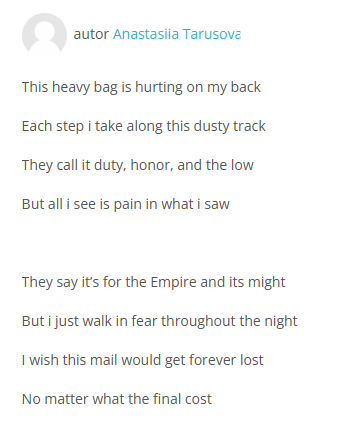
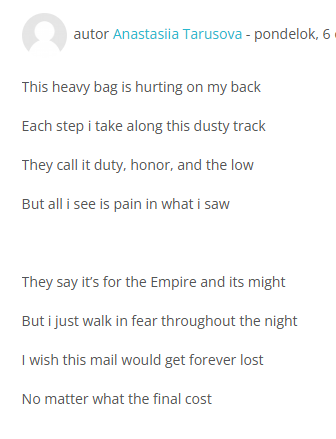

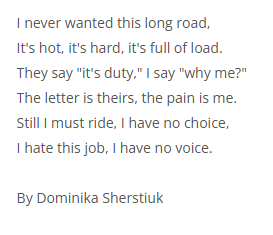
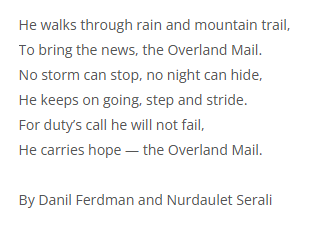
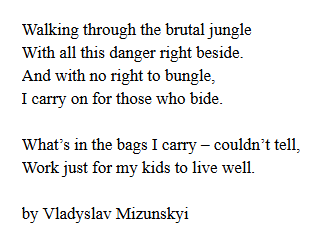
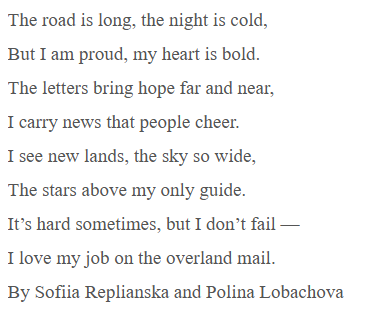
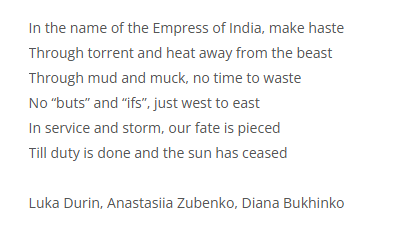
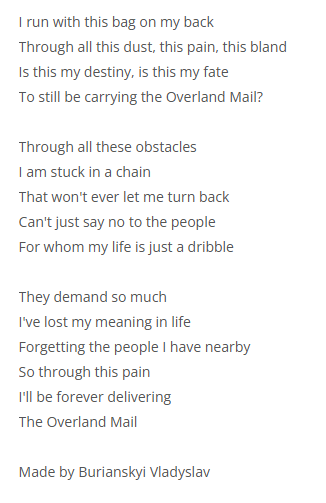
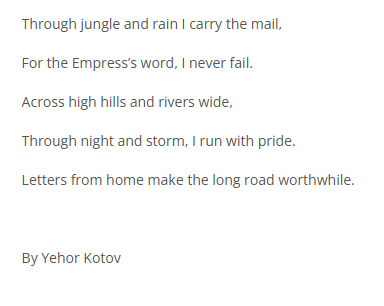
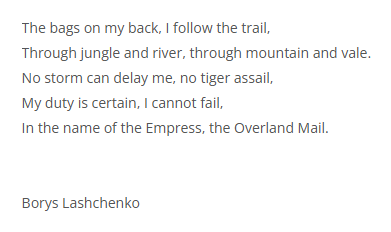
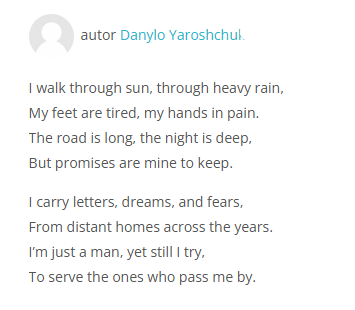
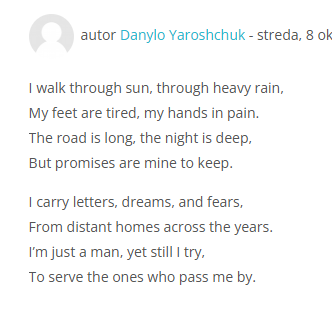
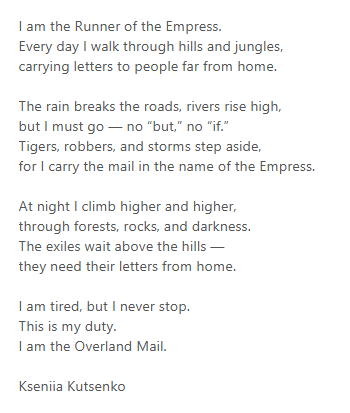




I was inspired by an excellent idea my colleague Mrs. Brnická came up with—bringing history to life on Instagram. It’s a creative and modern way to help students revise for unit tests or revisit topics they might not find particularly engaging. The concept is simple yet highly effective: students work in groups of about five to create Instagram-style content—around ten posts, reels, or stories—focused on a specific historical topic. What makes this activity so enjoyable is the variety and creativity students bring to it. Their posts are not only informative but often funny, clever, and incredibly thoughtful. Some reels turn into mini historical comedies, while others offer sharp, modern takes on past events. It’s amazing to see how humor and digital creativity can deepen historical understanding.
The collaborative element adds another layer of learning. Groups comment on each other’s posts, sparking conversations and friendly debates that make the whole experience more personal and engaging. This approach shows that history doesn’t have to stay in the textbook—it can thrive in the digital world, where students reinterpret it in ways that feel real, relevant, and memorable.
